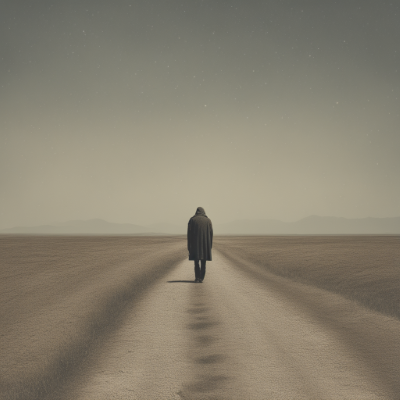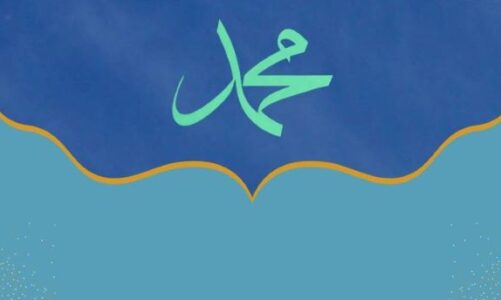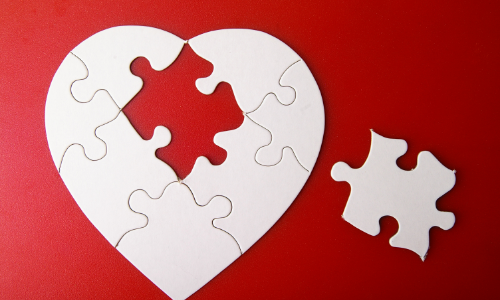We live a life shrouded in mystery, where everything seems intricately tangled. Why did masses of people come into this world, crawling through its challenges from birth? What are they searching for? Muffled cries and disorganized wails echo from all directions, enveloping the world in a somber veil. The burden lies heavy on the oppressed, while the oppressors remain carefree and untroubled. If this is life, then death becomes a merciful release! Shame on those who heartlessly watch humanity turn into mere commodities, forsaking their true essence for material gain!
Humans are like enigmas; their nature is difficult to decipher. They eat, drink, and sleep, but is that all there is to it? Consider this: The visible world is a mere façade, and humans represent the very purpose of existence. Otherwise, what sets them apart from other living beings? If intellect bears the sorrows of the past and carries the anxieties of the future, then it is aptly named “trouble.” If the distinguishing trait lies in inventions and scientific advancements, what else can be shown besides compressing the savagery in which monsters exist into fleeting moments? In this state, people become enemies to their own kind. Life becomes a devilish plot against life itself. Humanity is a tapestry, and the threads of its fate are shrouded in uncertainty. Hands chase shadows, eyes pursue mirages. Who can fathom the weight they carry, and who can breathe life into their lifeless bodies? These are questions that beget even more questions.
Plagued by countless afflictions and pains, humans are vulnerable. What support should they seek against these complex enigmas? Should they seek solace in the extinguished light of life at the door of the grave? No, that cannot be the remedy for future fears and anxieties, even if they were to become rulers of the world. So what do they truly need? What is the treasure they yearn for deep within, yet cannot find? Life, in all its aspects, presents itself as an illusion, causing pain from the beginning to the end. The paths are winding and steep, and the world sets traps for them at every turn, leaving them feeling estranged.
You are a stranger in this world,
Do not laugh, but cry, my heart!
You have many sorrows,
Do not laugh, but cry, my heart!
They should cry freely, not knowing their origin and uncertain of their destination. They should drown in the vast ocean of tears; perhaps there, they will find what they seek. Why are the paths so unfaithful to them? No, it is not the fault of the paths; they have lost their way. Ever since their hearts were sprinkled with pepper and their minds were clouded, the day the reed was mixed with sugar and separated from the sherbet… Those who burdened them with worldly concerns disconnected them from their true essence, turning them into mere physical entities. They skinned their hearts to make shoes and used the skin of their feet as headbands on crowns. They learned to crawl face-down, using their hands to perform the tasks of their feet as a skill. And worst of all, they viewed everything from a self-centered perspective, painting their desires over the world. The carnal soul, filled with tyrannical emotions, turned them into robotic painters, depicting lustful patterns. Fasting became a time of indulgence, breaking fast turned into revelry, and festivals became places of idolatry! They became poor creatures, devoid of willpower, enslaved by the events around them. But as the colors fade before their eyes, pleasures turn bitter as they approach non-existence, and the thought of death being nothingness becomes too much to bear, they seek comfort in places of amusement and debauchery despite their hearts crying out. Alas! That wound is too deep. Shame on them! Such a remedy is utterly meaningless.
A materialistic poet says:
A past that is futile to reminisce,
Don’t weep for a future yet to come,
The past, the future, all just fairy tales,
Enjoy your life, don’t ruin it!
He wants to portray their broken hearts and dismiss their eternal yearning as futile. However, they are not mere matter; they embody the essence of existence and creation, capable of encompassing all meanings in the universe. The heavens are their throne, the Lote-tree their arch, and the Divine Throne is a veil within them, or the throne of their hearts. They are now far from this ideal realm, blinded and cast away by obstinate forces. They are lost in the wilderness, entangled in sorrow under the influence of worldly pleasures. When their hearts tighten, they lie down; when burdened, they eat and drink. What a delusion to believe that these actions will cure their sorrows! Their desires are endless, and their burdens weigh heavily. The pain of being deprived of pleasures and failing to attain eternal delights… What about the turmoil caused by those who left and never returned? Can they deny this? They too will go where those before them have gone, and they will never return.
This a risky place,
Its roads are treacherous.
The ones who left don’t come back,
Who knows what it is.
The voice they hear from all directions seems to emanate from non-existence. This is not their homeland; it is merely a temporary stopover. They feel lonely here, like orphans and strangers. They must seek a companion and gradually escape from this foreign land. To find the solution to their predicament, they must understand that they are separated from their true homeland and the Beloved.
Note: This text is a translation of the author’s original essay titled “Gurbet,” which was published in the Gurbet magazine on April 1, 1966.




